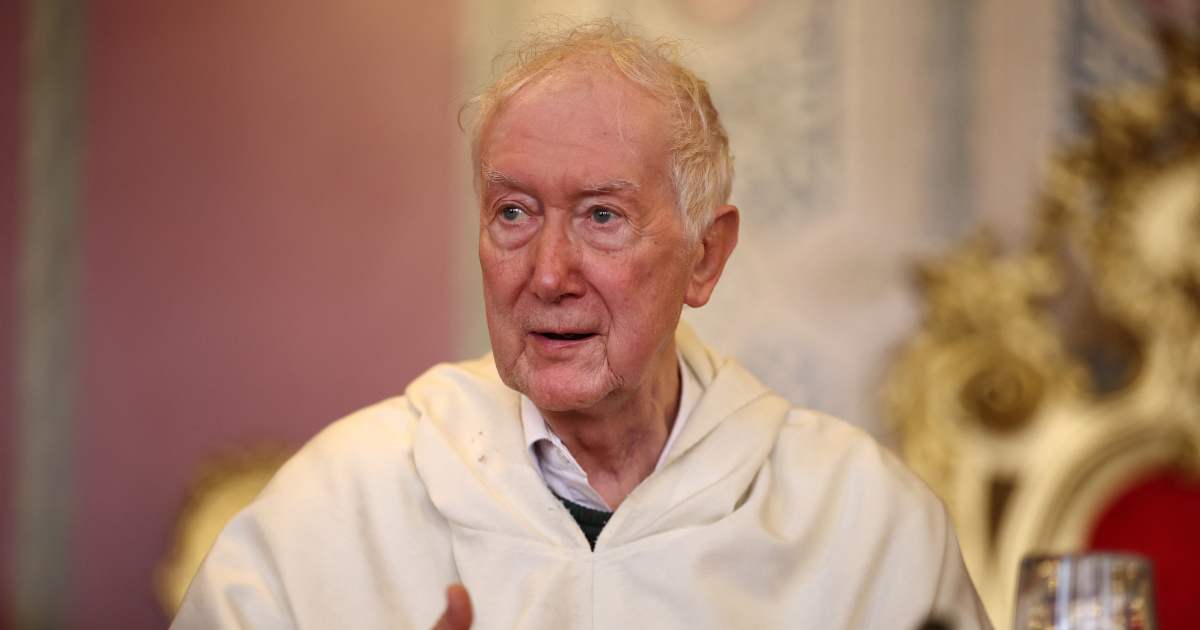Assisted suicide services could be provided by private companies under government plans to ensure the number of requests don’t impede current efforts to bring down NHS waiting lists in the UK.
If the law change proposed by MP Kim Leadbeater’s assisted suicide Bill comes to pass, Ministers have “no in-principle objection” to outsourcing it in order to minimise the effect on existing NHS services, reportsThe Times of London.
It reports that options to contract out "assisted death" to the private sector are being considered by the Labour government in an effort to ease pressure on NHS clinics and to address the point raised by some doctors that a separate service would be needed if patients are to be assisted in ending their own lives.
Ministers "want to offer assisted dying free at the point of use on the NHS if the law is changed", The Times reports, and those ministers have “no in-principle objection” to outsourcing it to minimise the effect on existing NHS services.
Apparently a model similar to how dentistry is provided – in which clinics offer NHS treatment to some patients as well as services to paying clients – is under consideration.
Leadbeater is understood to be open to such a model and to be "planning to toughen language" in the Bill to make clear that the service must be provided through the NHS, reportsThe Times, while private providers may be limited to making what is termed a “reasonable” profit for providing the service through the NHS.
However, The Times reports there would be no ban on private clinics offering assisted dying, allowing patients to have a choice about how they end their lives.
Following the Bill passing its Second Reading in the House of Commons at the end of last year, MPs are considering the details of the legislation that would allow terminally ill patients judged to have six months to live to be assisted by doctors in ending their lives.
The Bill has been unanimously condemned by the Catholic Church in the UK, as well as by scores of organisations and experts involved in the likes of providing palliative care and looking after the elderly and disabled.
While the government has ostensibly remained neutral, Prime Minister Keir Starmer has spoken out in favour of changing the law to permit assisted suicide. Currently an official impact assessment is examining the consequences of Kim Leadbeater’s Terminally Ill Adults (End of Life) Bill to "ensure it is workable", reports The Times.
But critics of the Bill have claimed that Leadbeater has assembled a “stacked committee” to scrutinise her assisted suicide Bill. The 23-member committee omits many key opponents to the Bill in the House of Commons while including those who are actively campaigning for a change in the law.
RELATED: Assisted suicide MP unveils ‘stacked’ committee to consider her Bill
NHS bosses are apprehensive about having to arrange assisted suicide services, The Times reports, "fearing that it would be a hugely complex task". It adds that MPs are also nervous about the unknown costs to the health service.
There are ministers who are said to be “not dogmatic” about how the service is structured and are looking at other countries where doctors with a particular interest in assisted suicide run specialist services. “You could end up with what you have in the States and Australia, where a cohort of doctors specialise in assisted dying and are passionate about it,” one government source told The Times.
Leadbeater is also understood to be open to the NHS contracting out services while other patients pay privately alongside this, while insisting that there must be a free-at-the-point-of-use option of some kind.
Government sources also told The Times that operational considerations on NHS capacity would guide the framework and that "waiting lists must not be sacrificed to deliver assisted death".
Under the assisted suicide Bill, two doctors must assess each request, at least seven days apart, to ensure the person has a “clear, settled and informed wish to end their own life” and that they have reached this decision without coercion or pressure.
But Andrew Green, the chairman of the British Medical Association’s ethics committee, has said that assisted suicide “should not be part of the standard role of doctors”.
While the association is reportedly neutral on the principle, Green said: “We believe that a separate service outside of existing pathways – though not necessarily delivered outside of the NHS – would provide reassurance both to doctors and patients, as only those healthcare staff who have opted in to provide the service, and have completed specialised training, would be able to take part."
Other doctors have been more vocal about the moral implications: Dr Rachel Fisher, a GP who gives much of her own time to palliative care, is utterly dismayed by the “fundamental change in what it means to be a doctor” that would occur if the Bill becomes law.
Proposing death rather than preserving life is a betrayal of why Dr Fisher entered medicine, writesJenni Russell.
At the start of 2025, numerous NHS organisations declared "critical" situations in their hospitals, citing "sustained pressure" brought on by a surge in flu and other seasonal illnesses, which resulted in some hospitals with corridors crowded with patients who could not be placed in a ward.
Previous end-of-life "pathways" in the NHS do not have a good track record. The Liverpool Care Pathway (LCP) was abolished in every hospital and hospice in the country just under a decade ago. This end-of-life-care protocol was scrapped by the government as a “national disgrace”, in the words of Norman Lamb, then Care Services Minister, after a review by Baroness Neuberger found widespread failings and abuses.
RELATED: Quality of Life v. Sanctity of Life: British mindset on abortion will replicate itself in assisted suicide
Photo: Ambulances wait outside the Emergency Department at the Royal Cornwall Hospital, Truro, England, 4 January 2025. (Photo by Hugh Hastings/Getty Images.)
Assisted suicide services could be provided by private companies under government plans to ensure the number of requests don’t impede current efforts to bring down NHS waiting lists in the UK.
If the law change proposed by MP Kim Leadbeater’s assisted suicide Bill comes to pass, Ministers have “no in-principle objection” to outsourcing it in order to minimise the effect on existing NHS services, <a href="https://www.thetimes.com/uk/healthcare/article/assisted-dying-plan-outsources-provision-private-companies-0whj0bc5b"><mark style="background-color:rgba(0, 0, 0, 0)" class="has-inline-color has-vivid-cyan-blue-color">reports</mark></a> <em>The Times</em> of London.
It reports that options to contract out "assisted death" to the private sector are being considered by the Labour government in an effort to ease pressure on NHS clinics and to address the point raised by some doctors that a separate service would be needed if patients are to be assisted in ending their own lives.
Ministers "want to offer assisted dying free at the point of use on the NHS if the law is changed", <em>The Times </em>reports, and those ministers have “no in-principle objection” to outsourcing it to minimise the effect on existing NHS services.
Apparently a model similar to how dentistry is provided – in which clinics offer NHS treatment to some patients as well as services to paying clients – is under consideration.
Leadbeater is understood to be open to such a model and to be "planning to toughen language" in the Bill to make clear that the service must be provided through the NHS, <a href="https://www.thetimes.com/uk/politics/article/assisted-dying-bill-to-be-amended-to-cap-private-providers-profits-zd8mfsmvg"><mark style="background-color:rgba(0, 0, 0, 0)" class="has-inline-color has-vivid-cyan-blue-color">reports</mark></a> <em>The Times</em>, while private providers may be limited to making what is termed a “reasonable” profit for providing the service through the NHS.
However, <em>The Times</em> reports there would be no ban on private clinics offering assisted dying, allowing patients to have a choice about how they end their lives.
Following the Bill passing its Second Reading in the House of Commons at the end of last year, MPs are considering the details of the legislation that would allow terminally ill patients judged to have six months to live to be assisted by doctors in ending their lives.
The Bill has been unanimously condemned by the Catholic Church in the UK, as well as by scores of organisations and experts involved in the likes of providing palliative care and looking after the elderly and disabled.
While the government has ostensibly remained neutral, Prime Minister Keir Starmer has spoken out in favour of changing the law to permit assisted suicide. Currently an official impact assessment is examining the consequences of Kim Leadbeater’s Terminally Ill Adults (End of Life) Bill to "ensure it is workable", reports <em>The Times</em>.
But critics of the Bill have claimed that Leadbeater has assembled a “stacked committee” to scrutinise her assisted suicide Bill. The 23-member committee omits many key opponents to the Bill in the House of Commons while including those who are actively campaigning for a change in the law.
<a href="https://thecatholicherald.com/assisted-suicide-mp-unveils-stacked-committee-to-consider-her-bill/"><mark style="background-color:rgba(0, 0, 0, 0)" class="has-inline-color has-vivid-cyan-blue-color"><em><strong>RELATED: Assisted suicide MP unveils ‘stacked’ committee to consider her Bill</strong></em></mark></a>
NHS bosses are apprehensive about having to arrange assisted suicide services, <em>The Times </em>reports, "fearing that it would be a hugely complex task". It adds that MPs are also nervous about the unknown costs to the health service.
There are ministers who are said to be “not dogmatic” about how the service is structured and are looking at other countries where doctors with a particular interest in assisted suicide run specialist services. “You could end up with what you have in the States and Australia, where a cohort of doctors specialise in assisted dying and are passionate about it,” one government source told <em>The Times</em>.
Leadbeater is also understood to be open to the NHS contracting out services while other patients pay privately alongside this, while insisting that there must be a free-at-the-point-of-use option of some kind.
Government sources also told <em>The Times</em> that operational considerations on NHS capacity would guide the framework and that "waiting lists must not be sacrificed to deliver assisted death".
Under the assisted suicide Bill, two doctors must assess each request, at least seven days apart, to ensure the person has a “clear, settled and informed wish to end their own life” and that they have reached this decision without coercion or pressure.
But Andrew Green, the chairman of the British Medical Association’s ethics committee, has said that assisted suicide “should not be part of the standard role of doctors”.
While the association is reportedly neutral on the principle, Green said: “We believe that a separate service outside of existing pathways – though not necessarily delivered outside of the NHS – would provide reassurance both to doctors and patients, as only those healthcare staff who have opted in to provide the service, and have completed specialised training, would be able to take part."
Other doctors have been more vocal about the moral implications: Dr Rachel Fisher, a GP who gives much of her own time to palliative care, is utterly dismayed by the “fundamental change in what it means to be a doctor” that would occur if the Bill becomes law.
Proposing death rather than preserving life is a betrayal of why Dr Fisher entered medicine, <mark style="background-color:rgba(0, 0, 0, 0)" class="has-inline-color has-vivid-cyan-blue-color"><a href="https://www.thetimes.com/comment/columnists/article/doctors-save-lives-not-help-people-die-qjvjxwccw">writes</a> </mark>Jenni Russell.
At the start of 2025, numerous NHS organisations declared "critical" situations in their hospitals, citing "sustained pressure" brought on by a surge in flu and other seasonal illnesses, which resulted in some hospitals with corridors crowded with patients who could not be placed in a ward. <br><br>Previous end-of-life "pathways" in the NHS do not have a good track record. The <a href="https://thecatholicherald.com/the-banned-end-of-life-pathway-that-has-never-gone-away/"><mark style="background-color:rgba(0, 0, 0, 0)" class="has-inline-color has-vivid-cyan-blue-color">Liverpool Care Pathway</mark></a> (LCP) was abolished in every hospital and hospice in the country just under a decade ago. This end-of-life-care protocol was scrapped by the government as a “national disgrace”, in the words of Norman Lamb, then Care Services Minister, after a review by Baroness Neuberger found widespread failings and abuses.
<a href="https://thecatholicherald.com/disability-and-death-how-the-british-mindset-on-abortion-will-manifest-itself-in-assisted-suicide/"><mark style="background-color:rgba(0, 0, 0, 0)" class="has-inline-color has-vivid-cyan-blue-color"><strong><em>RELATED: Quality of Life v. Sanctity of Life: British mindset on abortion will replicate itself in assisted suicide</em></strong></mark></a>
<em>Photo: Ambulances wait outside the Emergency Department at the Royal Cornwall Hospital, Truro, England, 4 January 2025. (Photo by Hugh Hastings/Getty Images.)</em>


















